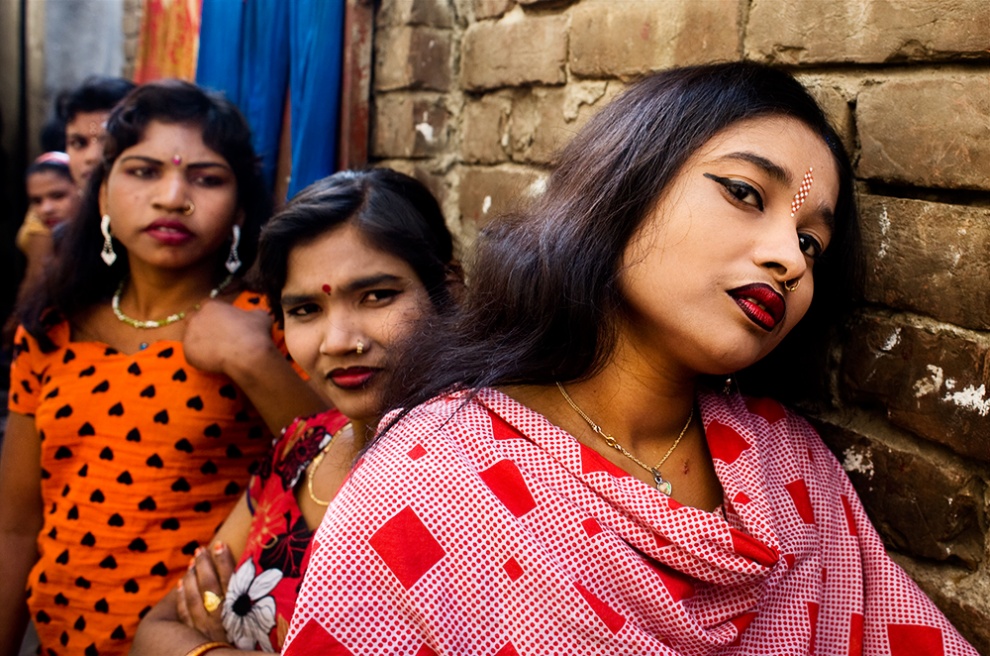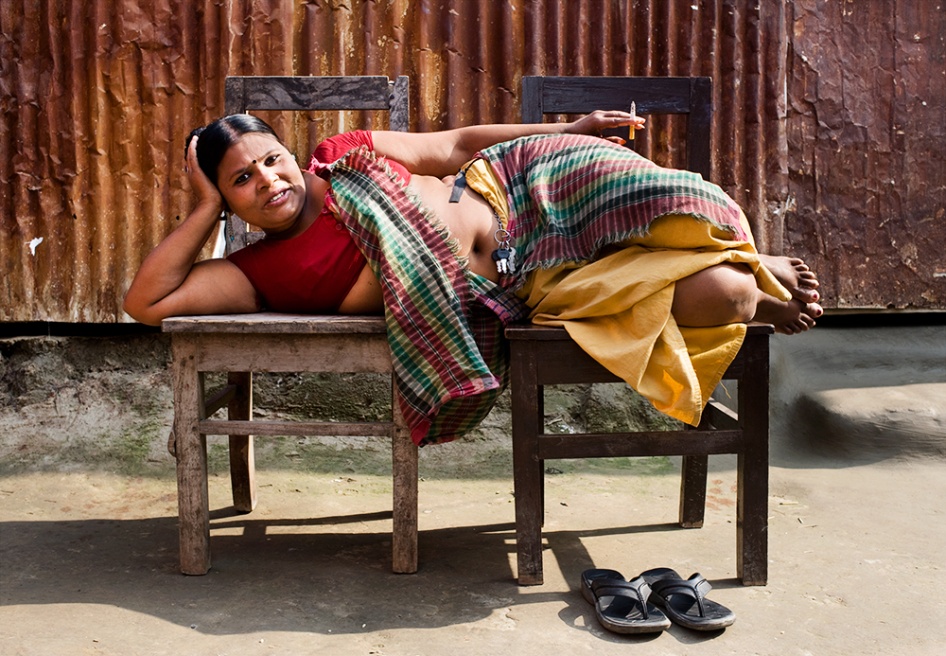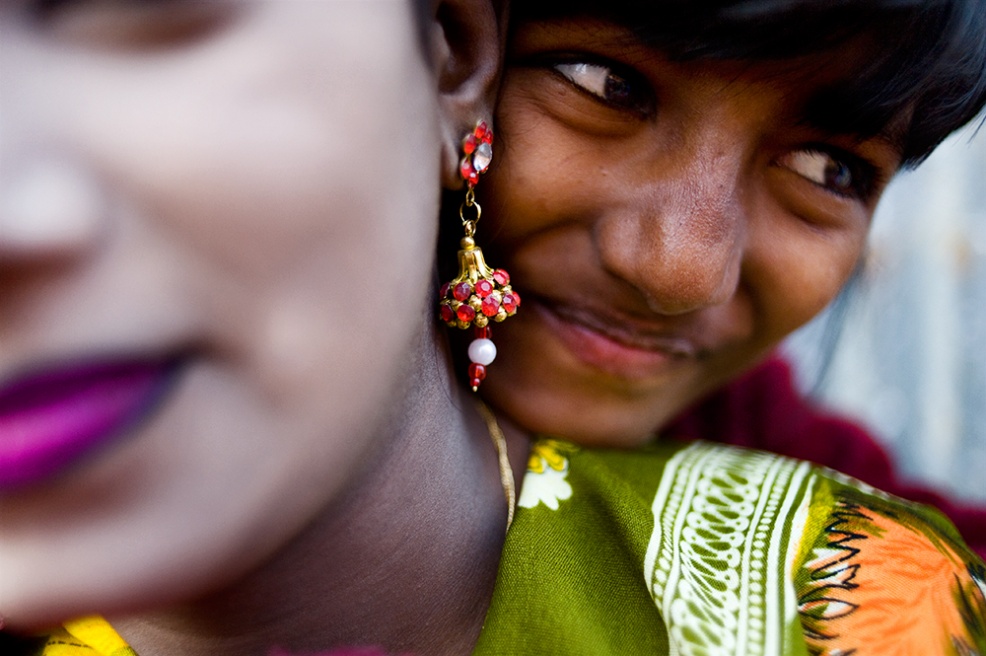In July 2010, radical islamists burned down the brothel injuring two prostitutes and leaving most without anything. “We had to jump onto the river and losteverything”, recalls Hasina. “We even didn’t have clothesto wear and we were forced to live one month and a half in the open”. The attack was coordinated by middle aged men who want the prostitutes out. “They say that the women corrupt their boys and they know that their assault wouldn’t be punished by this hypocrite society”. explains Shirin Akter,an Action Aid worker, “and they know that their assaultwouldn’t be punished by this hypocrite society”.
Nobody was arrested and troops were deployed to protect thereconstruction of the place only after the Prostitutes’Association made a public pledge. After countless demonstrations that stirred media interest, prostitutes now fight for their rights. They don’t have to walk barefoot when they leave the brothel anymore, and their bodies can be buried in a cemetery, though still in a separate one. Better than having their remains floating in the river covered by a sheet, anyway. But, still, sex workers’ IDs state their job and their address appears as ‘brothel’. That’s today’s fight. But the war goes to a higher ground: making prostitution legal in a country which Constitution stipulates it’s citizens’ right to choose their profession freely.
“Society uses us to fulfill their human needs, but treats us like animals”, criticizes Ahya Begum, 37, president of the Prostitute Association of Faridpur, which gets support from both SMS and the international NGO Action Aid. “Maybe our job is different from others, but human dignity has nothing to do with profession”, claims Begum during a public gathering in a small garage in front of Faridpur’s brothel compound. Women around her nod their heads in silence. In this kind of assembly, the girls vote and decide things such as minimum price for sex (never less than 100 taka), and minimum age to work (15). Condom use, they say, must be compulsory. It’s definitely a nice show of force, Democracy at its best, but a deceiving one as well. But customers seldom cover their penises with latex, and most prostitutes here started to work along with their first menstruation.
The brothel is an unlikely place for sex: a rundown concrete building where rats run free in rural Bangladesh. Small holes in the walls allow the only supply of natural light and air into the jail-like compound. Fluorescent bulbs hesitate to light up, and turn it into the ideal background for a horror blockbuster. Many boards show happy condoms trying to fight HIV with a broad smile, but the girls accept having sex without one if the customer insists. “There is no choice”, Lima says. And that’s why 70% of the girls are infected withsome kind of STD.
Hasina served her first man when she was just 12. Like Lima and many others, rape was how she started. In the rigid Bengali society, shame cannot be washed. Stigma is forever. Now, she’s 40 and her price tag has fallen to a rock bottom 50 taka (70 cents.) per customer. That’s also the sum she has to pay, daily, for the rent of the bamboo hut where she works and lives. "The situation is deteriorating. Prices for food and accommodation skyrocket, while people’s income remains stable. Those fishermen stopping by to have sex have less disposable money, and therefore we are living a crisis”.
Society has forced them to live in darkness; the lowest possible social statues. Men love them and hate them, demand their services while others tried to kill them. A contradiction which does not let them live.

























